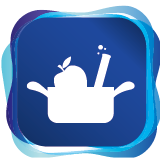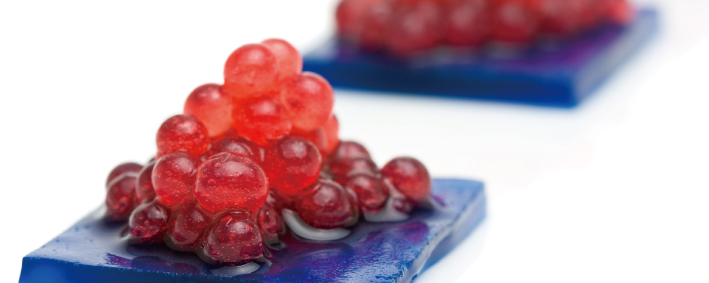 |
CCST9045 Science, Technology and Big Data
|
[This is a certified Communication-intensive (CI) Course which meets all of the requirements endorsed by HKU’s Senate, including (i) the teaching assessment of oral and digital communication ‘literacies’; and (ii) at least 40% of the course grade assigned to communication-rich assessment tasks.]
Course Description
There is an old saying, “You are what you eat”, which means the food one eats has a bearing on one’s state of mind and health. Since the discovery of fire, culinary practices have been instrumental in the progress of human evolution. Culinary practices may be regarded as one of the oldest and most widespread applications of chemistry and physical sciences in everyday life. Traditionally, understanding and knowledge on cooking are based on collective experiences of diverse individuals passed down from generations to generations. In this course, we will guide the students to explore everyday life cooking and food preparation activities from scientific perspectives. We will examine critically the “folk knowledge” of cooking from the viewpoints of chemical, biological, physical and social studies. The aim of this course is to promote science literacy through exploring concepts and theories that are behind everyday cooking and cuisines. Using knowledge of cooking as a starting point, students will explore the intimate relationship between sciences, personal life and society through daily life examples and laboratory demonstrations. All course contents including practical sections are designed to be suitable for students having little or no science training.

Course Learning Outcomes
On completing the course, students will be able to:
- Identify the science, social and historical contexts that influence the development of the culinary field, including the evolution of cooking methods, technologies and choice of ingredients.
- Describe and explain the science principles behind the preparation, production, consumption, storage and safety measures of food and cooking.
- Analyze and evaluate case scenarios such as cooking myths and health claims of functional food using evidence-based scientific methods.
- Critically evaluate the cause and impact of food productions, food safety scandals and other food related issues from scientific, social and economic perspectives.
Offer Semester and Day of Teaching
Second semester (Wed)
Study Load
| Activities | Number of hours |
| Lectures | 22 |
| Tutorials | 8 |
| Laboratory experience | 9 |
| Reading / Self-study | 36 |
| Assessment: Essay / Report writing | 10 |
| Assessment: Poster and presentation (incl preparation) | 40 |
| Assessment: In-class quizzes | 10 |
| Assessment: Electronic portfolio | 20 |
| Total: | 155 |
Assessment: 100% coursework
| Assessment Tasks | Weighting |
| Project | 30 |
| Participation | 15 |
| Laboratory report | 5 |
| Quizzes | 30 |
| Individual self-reflection portfolio | 20 |
Required Reading
- Barham, P. (2001). The science of cooking. Berlin: Springer. [Chaps. 1-5]
- McGee, H. (2004). On food and cooking: The science and lore of the kitchen. New York: Scribner. [Chaps. 3, 4, 6, 8, 10, 13, 14]
Course Co-ordinator and Teacher(s)
| Course Co-ordinator | Contact |
| Dr M.Y. Yuen Department of Chemistry, Faculty of Science |
Tel: 2859 7915 Email: maiyan@hku.hk |
| Teacher(s) | Contact |
| Dr M.Y. Yuen Department of Chemistry, Faculty of Science |
Tel: 2859 7915 Email: maiyan@hku.hk |
| Professor Y. Li Department of Chemistry, Faculty of Science |
Tel: 3917 6076 Email: yingli0e@hku.hk |

